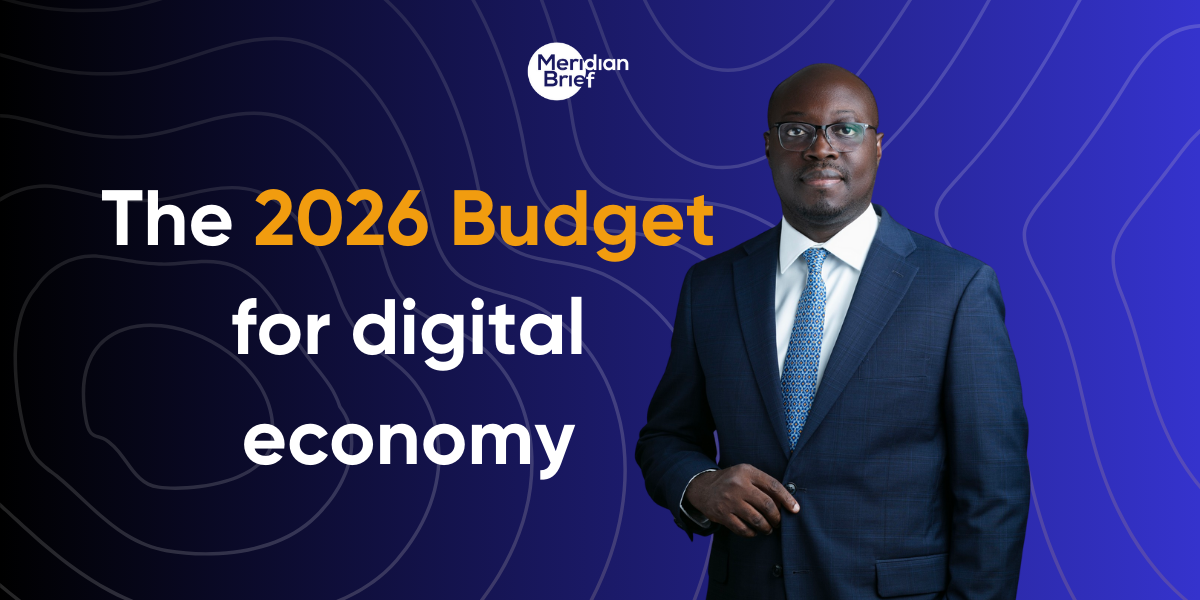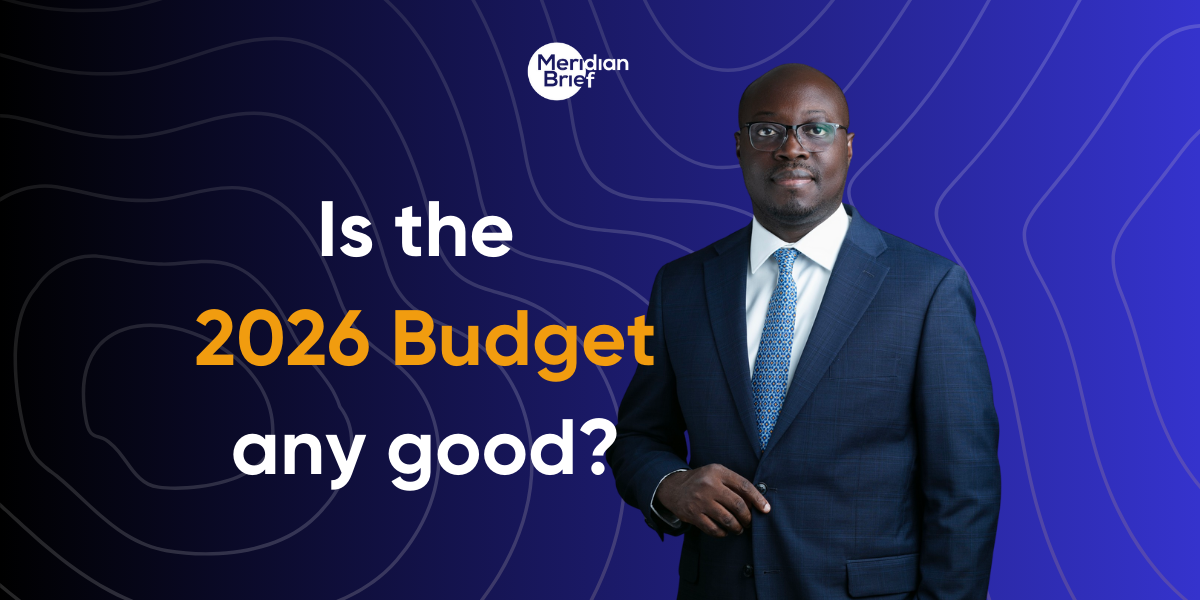Ghana’s health technology sector has experienced steady growth in recent years, driven by a need to improve access to quality healthcare and address long-standing gaps in the country’s health system. As we look toward 2025, several health startups in Ghana are emerging as potential game changers. These innovative companies aim to deliver solutions that range …
Top Health Startups in Ghana to Watch in 2025: Transforming Care Through Innovation

Ghana’s health technology sector has experienced steady growth in recent years, driven by a need to improve access to quality healthcare and address long-standing gaps in the country’s health system. As we look toward 2025, several health startups in Ghana are emerging as potential game changers. These innovative companies aim to deliver solutions that range from telemedicine and electronic health records to health diagnostics and wellness platforms. This article examines the top health startups in Ghana that are poised to make an impact in 2025, evaluating their potential to serve real needs, the current state of health tech in the country, regulatory developments, and their overall effect on the nation’s healthcare landscape.
The Growing Landscape of Health Technology in Ghana
Health System Challenges and the Need for Innovation
Ghana, like many countries in sub-Saharan Africa, faces significant challenges in its healthcare system. Limited access to quality care, long distances to health facilities, shortages of trained personnel, and inadequate health infrastructure have all contributed to persistent gaps in service delivery. In response, both the government and private entrepreneurs are turning to technology as a means to address these issues.
Telemedicine, mobile health applications, and digital health records are increasingly recognized as vital tools to extend the reach of healthcare services to underserved populations. According to data from the Ghana Health Service and the Ministry of Health, there is a growing demand for solutions that reduce the burden on overcrowded facilities and provide remote communities with access to specialist care.
Regulatory Environment and Government Initiatives
The regulatory environment in Ghana is gradually adapting to the rise of health technology. The government, through the Ministry of Health and the Ghana Health Service, has implemented several initiatives to promote digital health. The Electronic Health Records (EHR) policy, launched a few years ago, and the Health Sector Strategic Plan emphasize the need to integrate technology into health service delivery. Additionally, the National Information Technology for Accelerated Development (ICT4AD) policy has provided a framework that supports innovation in health tech.
Furthermore, the Data Protection Act of 2012 plays a critical role in ensuring patient confidentiality and data security—an essential consideration for any digital health startup. While these legal frameworks offer a foundation for growth, challenges remain in ensuring that regulations keep pace with rapid technological advancements.
Top Health Startups in Ghana to Watch in 2025
Several innovative startups are making headway in the Ghanaian health tech scene. Below, we highlight five health startups that are poised to lead the transformation of healthcare in Ghana over the next few years.
1. mPharma
Overview and Impact
mPharma is one of the region’s most acclaimed health startups. Although its origins trace back to initiatives that began in other parts of Africa, mPharma has made significant inroads in Ghana. The company works to improve access to affordable medications by connecting pharmacies, hospitals, and drug manufacturers through a digital supply chain platform.
Serving Real Needs
In Ghana, a persistent challenge is the inconsistent availability of essential drugs, often leading to stock-outs and exorbitant prices. mPharma addresses this by ensuring efficient drug distribution, reducing wastage, and lowering costs. By streamlining the supply chain, mPharma not only benefits consumers by making medications more affordable but also enhances the efficiency of the healthcare system.
Regulatory Considerations
Operating within the framework provided by the Food and Drugs Authority (FDA) of Ghana and in compliance with local trade and commerce regulations, mPharma’s solutions have received positive reviews. Their emphasis on compliance and transparency has helped build trust among stakeholders, paving the way for wider adoption of their services.
2. RelianceHMO
Overview and Impact
RelianceHMO is an innovative health management organization (HMO) that leverages digital technology to offer personalized health insurance and wellness services. By integrating mobile platforms with data analytics, RelianceHMO provides tailored insurance products that meet the unique needs of Ghanaians.
Serving Real Needs
Health insurance coverage in Ghana has traditionally been limited, with many citizens facing high out-of-pocket expenses. RelianceHMO seeks to bridge this gap by providing affordable, flexible, and accessible health insurance plans. Their digital approach not only simplifies the enrollment process but also enhances claim management, ensuring that policyholders receive timely assistance when needed.
Monetization and Cost Efficiency
RelianceHMO uses a subscription-based model and earns revenue through premiums and value-added services such as health consultations and wellness programs. By harnessing digital tools, the company reduces administrative costs, allowing for competitive pricing and broader market reach.
Regulatory Considerations
The company is regulated by the National Health Insurance Authority (NHIA) and complies with stringent data protection regulations. Such adherence to regulatory standards ensures that the services offered are secure and reliable.
3. mClinica
Overview and Impact
mClinica is a digital health startup that has rapidly gained recognition for its innovative approach to managing pharmaceutical care. The company uses mobile technology to connect healthcare providers with pharmaceutical companies and regulatory bodies, thereby improving the distribution and monitoring of medications.
Serving Real Needs
In Ghana, access to quality pharmaceutical services is a significant challenge, particularly in rural areas. mClinica’s platform helps ensure that patients have access to a consistent supply of medicines and allows for better monitoring of drug safety and efficacy. By providing a centralized system for data collection and analytics, mClinica empowers healthcare providers to make informed decisions, thereby improving patient outcomes.
Regulatory Environment
mClinica works closely with the Ghana Food and Drugs Authority (FDA) to ensure compliance with health regulations. Their efforts in promoting transparency and accountability have earned them recognition in local industry reports and academic studies focusing on digital health solutions in Africa.
4. MedTrak
Overview and Impact
MedTrak is a health tech startup specializing in telemedicine and electronic health record (EHR) systems. By facilitating remote consultations and maintaining comprehensive digital patient records, MedTrak aims to make quality healthcare more accessible, especially in remote or underserved areas.
Serving Real Needs
Telemedicine has become a critical tool in addressing the shortage of healthcare professionals in many parts of Ghana. MedTrak’s platform allows patients to consult with doctors remotely, reducing travel time and associated costs. Additionally, their EHR system ensures that patient data is readily available to clinicians, leading to more coordinated and effective care.
Monetization Strategies
MedTrak generates revenue through subscription models for healthcare facilities and per-consultation fees for individual users. The cost-effectiveness of their service has made it an attractive option for both public and private health providers.
Regulatory and Legal Considerations
Operating under the guidelines of Ghana’s Electronic Health Records policy and ensuring adherence to the Data Protection Act, MedTrak prioritizes patient confidentiality and data security. Their commitment to regulatory compliance has positioned them as a trusted partner in digital healthcare.
5. Wellvis
Overview and Impact
Wellvis is a comprehensive wellness platform that integrates health information, preventive care services, and fitness solutions into one accessible digital interface. The platform offers features such as appointment scheduling, teleconsultations, and personalized health tips, aimed at promoting overall well-being among its users.
Serving Real Needs
With rising concerns about non-communicable diseases and a growing awareness of preventive healthcare, Wellvis addresses a critical need for health education and regular monitoring of personal health. The platform has become popular among urban dwellers who seek convenient access to health services and reliable health information. By providing a one-stop solution, Wellvis helps bridge the gap between healthcare providers and consumers, particularly in contexts where traditional health facilities may be overburdened.
Monetization and Partnerships
Wellvis employs a freemium model: basic health services are available free of charge, while premium features—such as detailed health analytics and personalized consultations—require a subscription. Strategic partnerships with local clinics and hospitals further enhance their service offerings, ensuring that users receive seamless care both online and offline.
Regulatory Considerations
The platform complies with health data security standards outlined by Ghana’s Data Protection Act, and its operations are monitored by the Ministry of Health. Such compliance is essential for building user trust and ensuring the long-term viability of digital health services.
Holistic Assessment of Impact
Addressing Real Needs
The primary measure of success for any health startup is whether it meets the real needs of the population. In Ghana, significant challenges remain in providing equitable access to quality healthcare. Traditional health facilities are often overburdened, especially in rural areas where access is limited. The startups highlighted above are addressing these issues through various means:
- Digital Payment and Supply Chain Integration: Startups like mPharma (although discussed earlier in finance) and mClinica are bridging the gap between supply and demand for pharmaceuticals, ensuring that essential medicines are available at lower costs.
- Remote Healthcare Access: MedTrak’s telemedicine services have become indispensable in remote areas where access to doctors is scarce. By reducing the need for travel, these services not only improve access but also reduce the cost and time burden on patients.
- Financial Protection: RelianceHMO is expanding health insurance coverage, a critical need in a country where many individuals face high out-of-pocket expenses. By offering tailored insurance solutions, it enhances financial protection and improves access to care.
- Wellness and Preventive Care: Wellvis is responding to the growing awareness of the importance of preventive healthcare. With lifestyle diseases on the rise, the platform’s focus on wellness and health education is particularly timely.
The State of Health Tech in Ghana
Ghana’s health technology sector is still evolving, but several factors indicate a promising future:
- Infrastructure Improvements: Efforts to expand broadband connectivity and increase smartphone penetration have set the stage for broader adoption of digital health services. However, challenges remain in rural areas, where connectivity and reliable electricity are still intermittent.
- Government Initiatives: The Ministry of Health and the Ghana Health Service have implemented policies to promote the use of electronic health records and telemedicine. The regulatory framework, while still developing, is moving in a positive direction with laws like the Data Protection Act and the Electronic Health Records policy providing necessary guidelines.
- Investment and Funding: There has been growing interest from both local and international investors in Ghana’s health tech sector. Startups are increasingly securing funding through venture capital, angel investors, and government grants, which fuels innovation and expansion.
- Collaborative Ecosystem: Partnerships between startups, healthcare providers, and regulatory bodies are critical for scaling digital health solutions. Many startups collaborate with local clinics, hospitals, and NGOs to enhance service delivery and build trust within communities.
Legal and Regulatory Framework
The legal environment plays a vital role in shaping the growth of health tech startups. Key regulations include:
- Electronic Health Records (EHR) Policy: Launched to standardize digital health records across healthcare facilities, the EHR policy aims to improve care coordination and patient data management.
- Data Protection Act (2012): This act governs the collection, use, and protection of personal data, a crucial aspect for any digital health service. Compliance with this law is mandatory for startups that handle sensitive health information.
- Telemedicine Guidelines: While still under development, the Ministry of Health is working on comprehensive guidelines to regulate telemedicine services, ensuring that remote care meets established standards of quality and safety.
For health startups, navigating these regulations is not merely a matter of compliance; it also represents an opportunity to build consumer trust and differentiate their services in a competitive market.
Recommendations for the Future
Based on our assessment of the top health startups and the current state of health tech in Ghana, several recommendations emerge for startups, policymakers, and investors:
For Health Startups
- Focus on User-Centric Design:
Health solutions must be tailored to the specific needs and contexts of Ghanaians. Startups should engage in extensive user research to design platforms that are accessible, affordable, and easy to use, particularly for populations with limited digital literacy. - Strengthen Partnerships:
Collaborations with local healthcare providers, government agencies, and international organizations can help startups scale their operations. Such partnerships also lend credibility to the startup and facilitate the integration of digital services with existing healthcare systems. - Invest in Robust Infrastructure:
Given the challenges in rural connectivity and power reliability, health startups should invest in solutions that are resilient to infrastructural limitations. This may include offline functionalities, low-bandwidth applications, and partnerships with local telecom providers to enhance service delivery. - Prioritize Data Security and Compliance:
Ensuring compliance with the Data Protection Act and other relevant laws is critical for maintaining user trust. Startups must invest in secure data management systems and regularly update their security protocols to protect sensitive health information.
For Policymakers
- Enhance Digital Infrastructure:
Continued investment in broadband connectivity, especially in rural areas, is essential. Policymakers should work with private sector partners to expand digital networks and ensure that even remote communities can benefit from health tech innovations. - Streamline Regulatory Processes:
Simplifying the regulatory environment for digital health startups can accelerate innovation. The government should consider establishing a dedicated regulatory sandbox for health tech, allowing startups to test new solutions in a controlled environment with reduced bureaucratic hurdles. - Promote Financial Inclusion in Healthcare:
Policies that encourage the adoption of digital payment systems and health insurance can facilitate greater access to healthcare services. Financial incentives, tax breaks, or subsidies for health tech companies could also spur growth in the sector.
For Investors
- Support Early-Stage Innovation:
Venture capitalists and angel investors should focus on early-stage health tech startups that demonstrate a strong understanding of local needs and have scalable business models. Investing in these companies not only promotes innovation but also addresses critical gaps in the healthcare system. - Encourage Public-Private Partnerships:
Investors can play a pivotal role in fostering collaboration between the public and private sectors. Public-private partnerships can provide the funding necessary to overcome infrastructural deficits and accelerate the adoption of digital health solutions across Ghana. - Diversify Investment Portfolios:
The health tech sector is multifaceted, encompassing telemedicine, digital health records, wellness platforms, and more. Investors should diversify their portfolios to include startups across these various sub-sectors, thus mitigating risk and fostering comprehensive growth within the industry.
Conclusion
As Ghana looks toward 2025, the health tech sector offers a beacon of hope for a country facing significant healthcare challenges. The top health startups, such as mPharma, RelianceHMO, mClinica, MedTrak, and Wellvis, are leading the way by offering innovative solutions that address the real needs of the population. These startups are not only improving access to essential healthcare services but are also contributing to the broader goal of transforming Ghana’s healthcare landscape.
Their impact is measured not just in revenue and user numbers but in the tangible improvements in health outcomes, reduced barriers to care, and enhanced financial protection for millions of Ghanaians. While challenges remain—ranging from infrastructural deficiencies and regulatory complexities to the need for greater digital literacy—the potential for transformative change is significant.
For young entrepreneurs, investors, and policymakers alike, the burgeoning health tech scene in Ghana represents both a lucrative opportunity and a critical tool for societal improvement. By focusing on user-centric design, strengthening partnerships, investing in robust infrastructure, and ensuring regulatory compliance, health startups can not only succeed in the competitive market but also drive meaningful progress in the nation’s healthcare system.
As Ghana continues its journey toward a more inclusive and innovative digital economy, health tech startups will play a crucial role in shaping the future of healthcare. The holistic approach adopted by these startups—addressing real needs, leveraging technology, and navigating regulatory landscapes—sets a promising precedent for what the sector can achieve by 2025. With concerted efforts from all stakeholders, Ghana can harness the power of digital health innovation to improve lives, foster economic growth, and build a more resilient healthcare system for the future.
Subscribe to MDBrief
Clean insights, a bit of sarcasm, and zero boring headlines.










